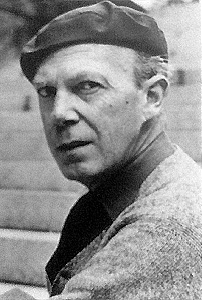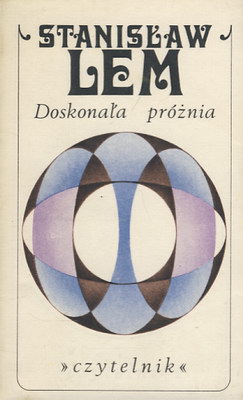
Stanisław Herman Lem was a Polish writer of science fiction and essays on various subjects, including philosophy, futurology, and literary criticism. Many of his science fiction stories are of satirical and humorous character. Lem's books have been translated into more than 50 languages and have sold more than 45 million copies. Worldwide, he is best known as the author of the 1961 novel Solaris. In 1976 Theodore Sturgeon wrote that Lem was the most widely read science fiction writer in the world.
Non serviam is Latin for "I will not serve".
Spirit(s) commonly refers to:
Airborne or Airborn may refer to:

Rotting Christ is a Greek black metal band formed in 1987. They are noted for being one of the first black metal bands within this region, as well as a premier act within the European underground metal scene. They are also responsible for creating the signature Greek black metal sound prevalent in the early 1990s.

Bengt Gunnar Ekelöf was a Swedish poet and writer. He was a member of the Swedish Academy from 1958 and was awarded an honorary doctorate in philosophy by Uppsala University in 1958. He won a number of prizes for his poetry.

Athanasios "Sakis" Tolis is a Greek musician best known as the vocalist and rhythm guitarist of Rotting Christ. He is also known as Necromayhem.

Non Serviam is the second full-length album by Greek extreme metal band Rotting Christ, released in 1994.

A Perfect Vacuum is a 1971 book by Polish author Stanisław Lem, the largest and best known collection of Stanisław Lem's fictitious criticism of nonexisting books. It was translated into English by Michael Kandel. Some of the reviews remind the reader of drafts of his science fiction novels, some read like philosophical pieces across scientific topics, from cosmology to the pervasiveness of computers, finally others satirize and parody everything from the nouveau roman to pornography, Ulysses, authorless writing, and Dostoevsky.
Howl most often refers to:
Life on Mars refers to the scientific investigation on the possibility of microbial life on the planet Mars.
Personoid is the concept coined by Stanisław Lem, a Polish science-fiction writer, in Non Serviam, from his book A Perfect Vacuum (1971). His personoids are an abstraction of functions of human mind and they live in computers; they do not need any human-like physical body.
Creator or The Creator may refer to:
Firefall is an American rock band formed in 1974.

Non Serviam is a 1945 poetry collection by the Swedish writer Gunnar Ekelöf. The title comes from the Christian phrase "Non serviam", which is Latin for "I will not serve" and is attributed to Lucifer. In the poems Ekelöf criticises the contemporary political climate of Sweden; in the titular poem he describes himself as "a stranger in this land", and in the satirical poem "Till de folkhemske" he ironizes the concept of Folkhemmet.
Mad scientists and inventors appear in the fiction of Stanisław Lem in the memoirs of Lem's starfaring vagabond Ijon Tichy, collected in The Star Diaries and Memoirs of a Space Traveller, as well as in The Cyberiad. Most of Lem's mad scientist stories fit into the format of stories about unusual inventions, known since the 19th century, most of them are devoid of ironic tone characteristic of most of Ijon Tichy's stories and robots' fables, and they are literary frames for various Lem's theories.
This page is based on this
Wikipedia article Text is available under the
CC BY-SA 4.0 license; additional terms may apply.
Images, videos and audio are available under their respective licenses.






